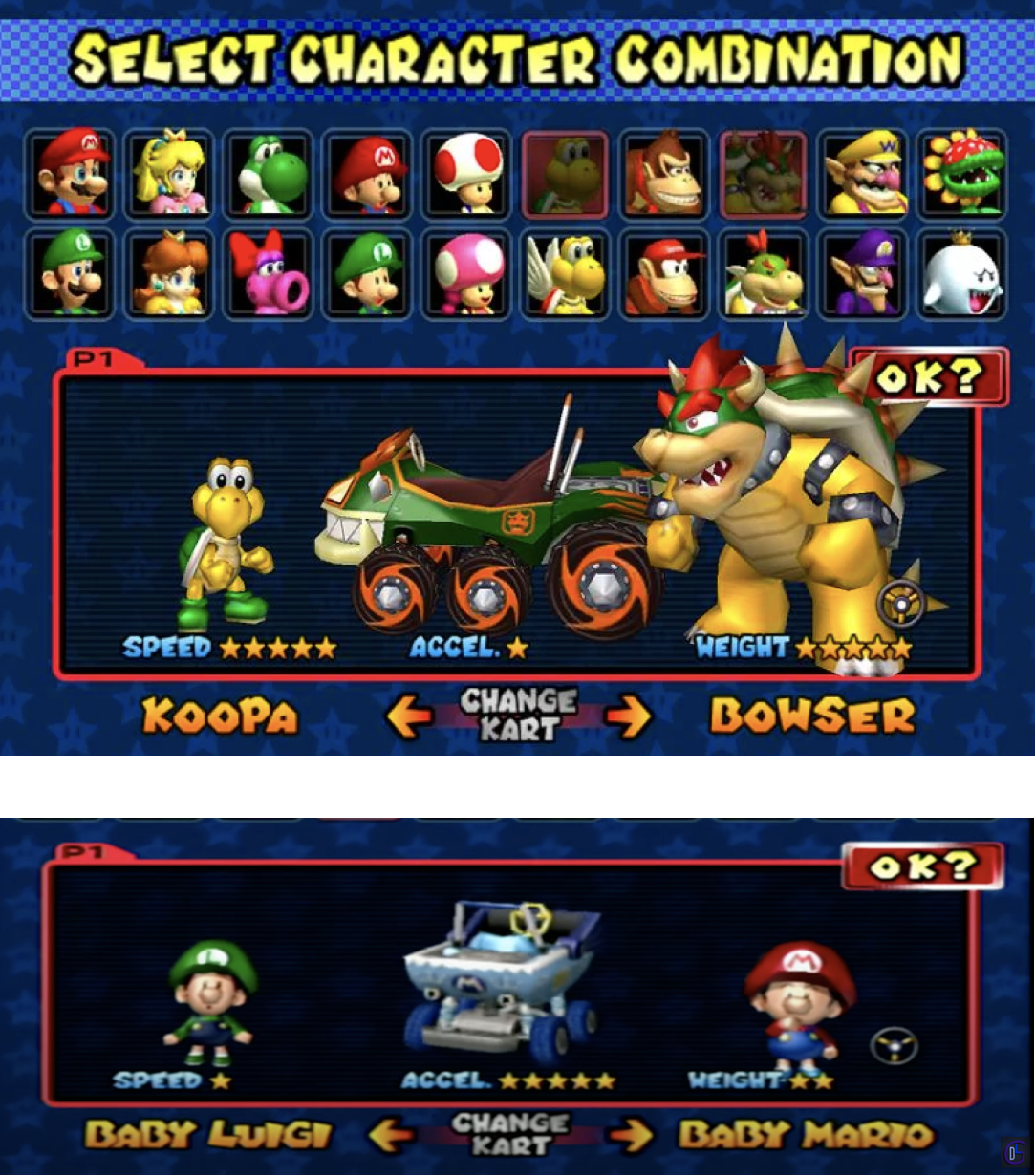
An old mentor used to ask me this a lot. I always stuttered back with the laundry list: money, career growth, fun coworkers, interesting technical problems, morally aligned work, reasonable working hours, etc. I obviously didn’t fully understand the question. It wasn’t clear to me at the time that he was really asking if I knew what tradeoffs I would be willing to make for each of those things.
I imagine it similarly to choosing characters in Mario Kart. How much stability do you want to sacrifice for some acceleration? How much money would I be willing to leave on the table for a brighter career trajectory?
I joined LinkedIn in 2015. The job came with generous compensation, reasonable hours and great people. The mission of creating economic opportunity for the global workforce made sense, but I could not draw a clear connection between my daily lines of code and that outcome. I knew I had to find something that felt more right, but I didn’t have a clear answer to “what are you optimizing for” when I asked my mentor where I should go next. I ended up going to a tiny company, experienced a lot of things that I definitely didn’t want, and left after 10 weeks.
In retrospect, when I left LinkedIn, I subconsciously recognized that my job is a big part of my identity and that I was willing to give up money and perks to fulfill some kind of purpose. As I spent more time in the industry, the values that comprise this sense of purpose came into clearer focus. Coaching my direct reports gave me more satisfaction than merging a complex feature branch filled with weeks of code. Delivering features to millions of Strava users felt more rewarding than a compensation increase. Friends who were working at companies with value-aligned missions were genuinely happier than the ones who flaunted how much money they made. I felt more and more energized with every additional ounce of accountability and influence I was given.
This reflection of my one year at Calm captures my values of career growth and company mission, and I am willing to trade-off large amounts of money, work-life balance and technical problems for them. I’ll elaborate on why these are my top values in a separate post, but having this clear conviction in priorities reduces day-to-day waffling about whether I’m doing the right thing and keeps me focused on pursuing the things that matter to me.